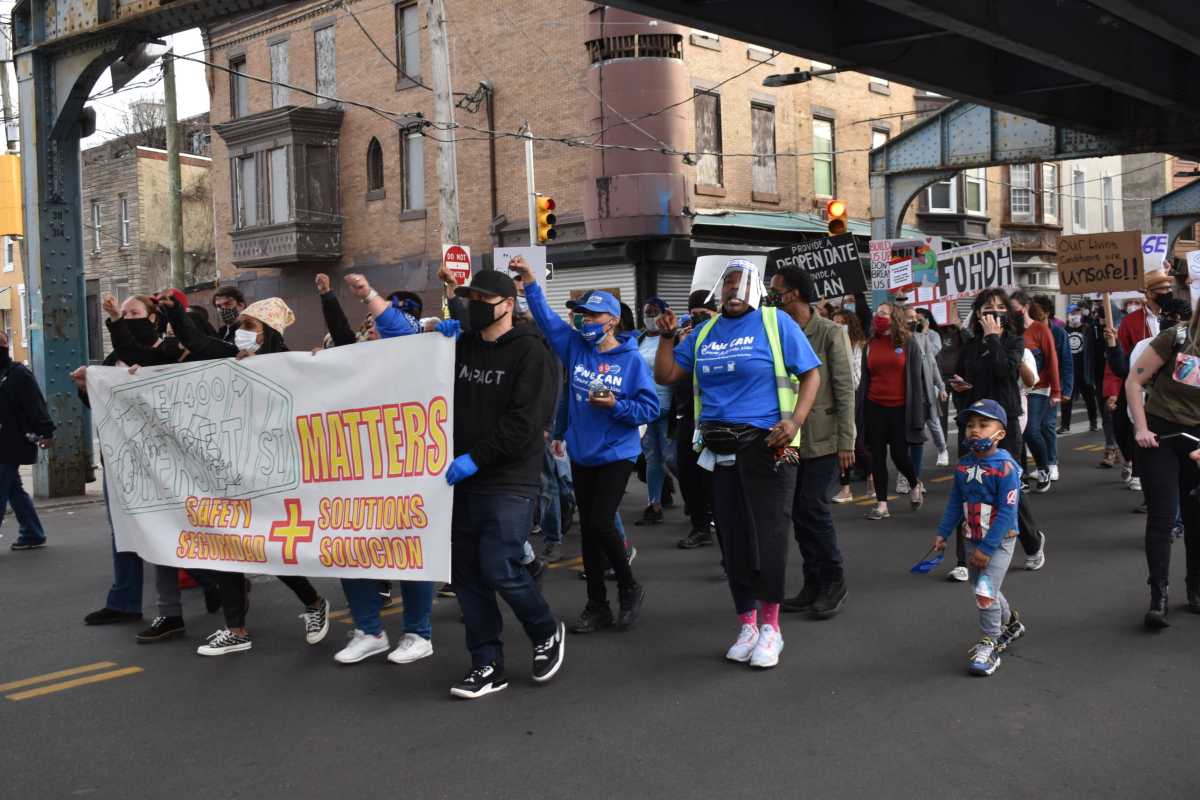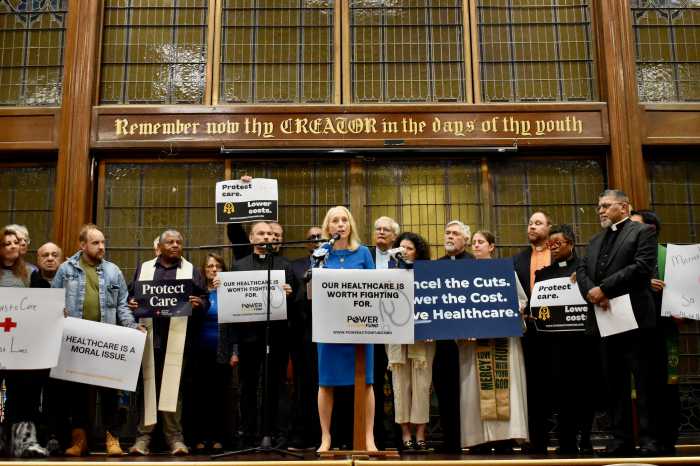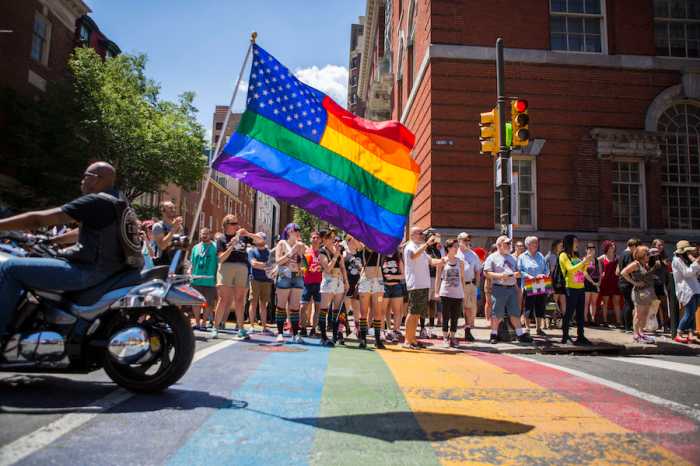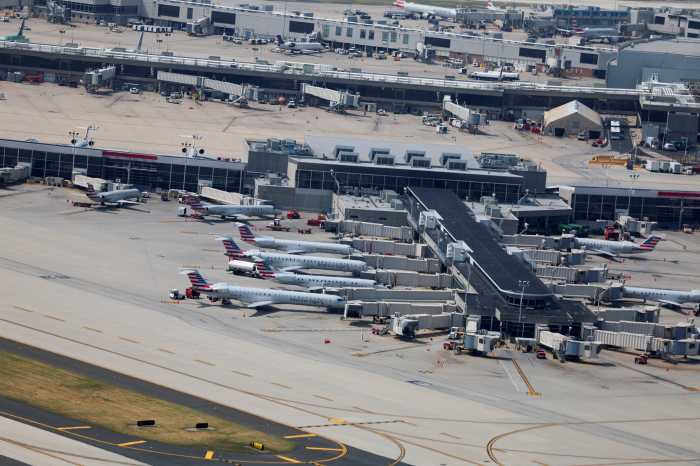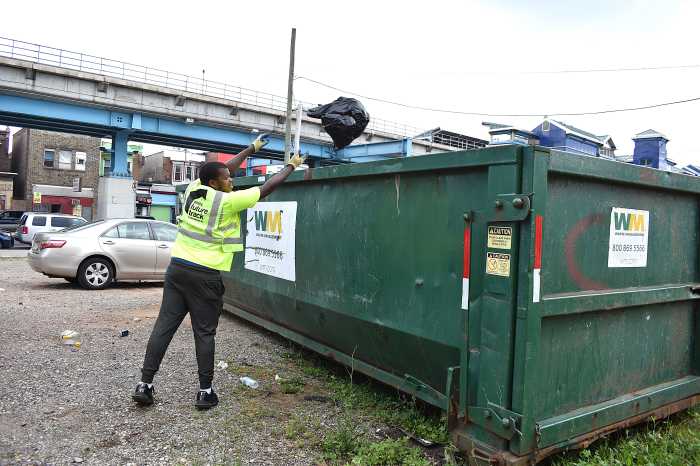Bill McKinney believes the closing of Somerset Station is a flashpoint for Kensington.
The temporary shutdown of the Market-Frankford Line stop has brought renewed attention to the plight facing the neighborhood that has for years been the face of Philadelphia’s opioid epidemic.
McKinney’s organization, the New Kensington Community Development Corporation, which is headquartered steps away from the station, led a march Tuesday evening calling for a plan from SEPTA and permanent solutions from the city.
“This isn’t a Kensington problem,” McKinney told Metro. “This is a regional problem. Kensington took on the burden and the issues from the whole region.”
SEPTA closed Somerset on Sunday, with no definitive timeline for its reopening, citing safety concerns and elevators that no longer function due to a build-up of needles and human waste.
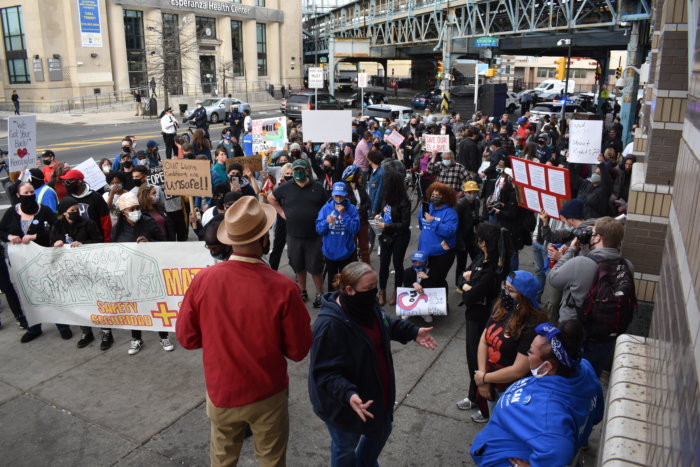
Community leaders and neighbors said the condition of the station is the result of a legacy of disinvestment and government disregard.
“Closing Somerset is a band-aid to a larger problem, and it feels like it’s not addressing the root issues and the root struggles that Kensington is navigating right now,” resident Chelsey Jackson said.
Demonstrators, during the protest Tuesday, walked past decaying storefronts and clusters of tents on street corners as they made their way from Somerset to Allegheny Station, which suffers from many of the same issues.
Chain-link fence blocks the entrances at Somerset, and, on Wednesday, SEPTA crews could be seen working on the stop’s platforms as trains whizzed by.
SEPTA spokesman Andrew Busch said the authority is still assessing the elevators, and a hazardous waste contractor is combing through the shafts for discarded needles.
In addition, steel on the stairwells and rider overpass is corroded, likely from urine, he said.
“If this community wasn’t poor and Black and brown, it would not have played out this way,” McKinney said. “There is no way it would have gotten to this point that you had to close it.”
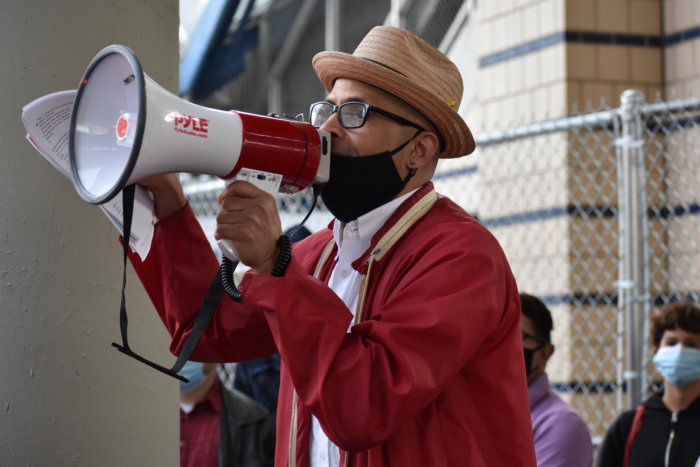
Many at the march faulted SEPTA’s process, saying residents had only a week’s notice to prepare for the closure with little-to-no community input.
“We had really significant safety concerns as it related to some of the structures there,” Busch said, calling it an emergency closure. “Under the circumstances, that was as much notice as we were able to give.”
Officials expect to reveal a reopening timeline by the end of the week.
NKCDC, Impact Services and HACE Community Development Corporation have demanded SEPTA offer shuttle service for people who live near Somerset, and Busch said the authority is considering that option.
Patrice Rogers, who lives near the stop, worries about elderly and disabled riders who may struggle to make it to the other nearby MFL stations, Huntingdon and Allegheny.
“Everyone cannot afford to have cars,” she said. “Everyone cannot walk.”
Even if they can, they may not want to, some neighbors pointed out, because they would have to confront a dark railway overpass or make their way through small encampments of drug users.
Kensington has also accounted for more shootings than any other neighborhood this year, according to a police presentation last week.
“If this was happening in a more well-off community, it wouldn’t be an issue,” Jackson said. “People would not tell other people to go walk farther or walk longer in unsafe neighborhoods. They would take care of the problem.”
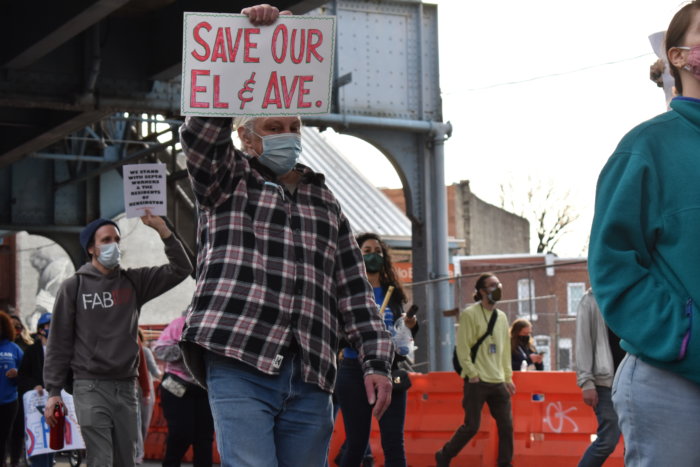
Community members sympathize with SEPTA workers, who have been fighting for more security within the system. McKinney said the current situation at Somerset is unsafe for transit employees and riders.
The authority is hashing out a contract to bring in 60 unarmed security guards to be stationed on the eastern half of the MFL as part of a larger strategy to protect workers and passengers.
At Somerset, Busch said, workers plan to deep-clean the station and enhance lighting. SEPTA is also pursuing partnerships with outside organizations and wants to participate in a broader plan to address the situation, he added.
Mayor Jim Kenney, speaking Tuesday, said his administration has been meeting with SEPTA, Philadelphia police and others to come up with a strategy to combat the issues of homelessness and drug use.
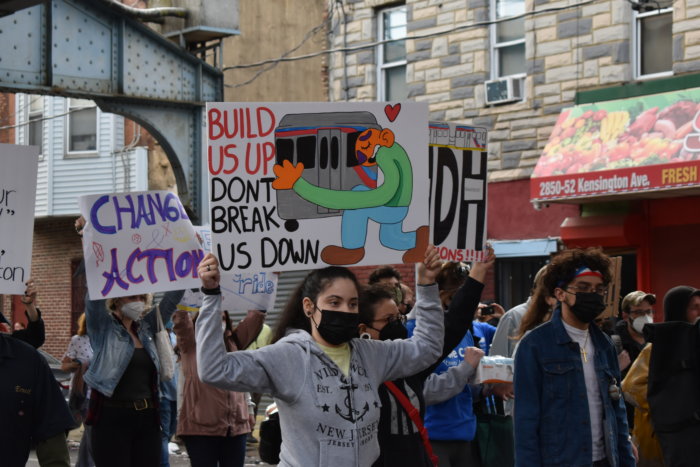
In the past, McKinney said, the city has cleared out encampments, pushing people from one area of the neighborhood to another.
“We don’t want a solution that is about just displacing folks again,” he said. “We don’t want our residents displaced, and we don’t want people who are sick and suffering to be displaced.”
There’s looming anxiety over gentrification due to the rapid development occurring around the MFL stops south of Somerset. Some at the protest wondered whether any initiatives to clean up Kensington would be designed more for investors than current residents.
“As we’re reopening this train station, we need to be working toward greater solutions, and those greater solutions need to come from the community,” McKinney said.



